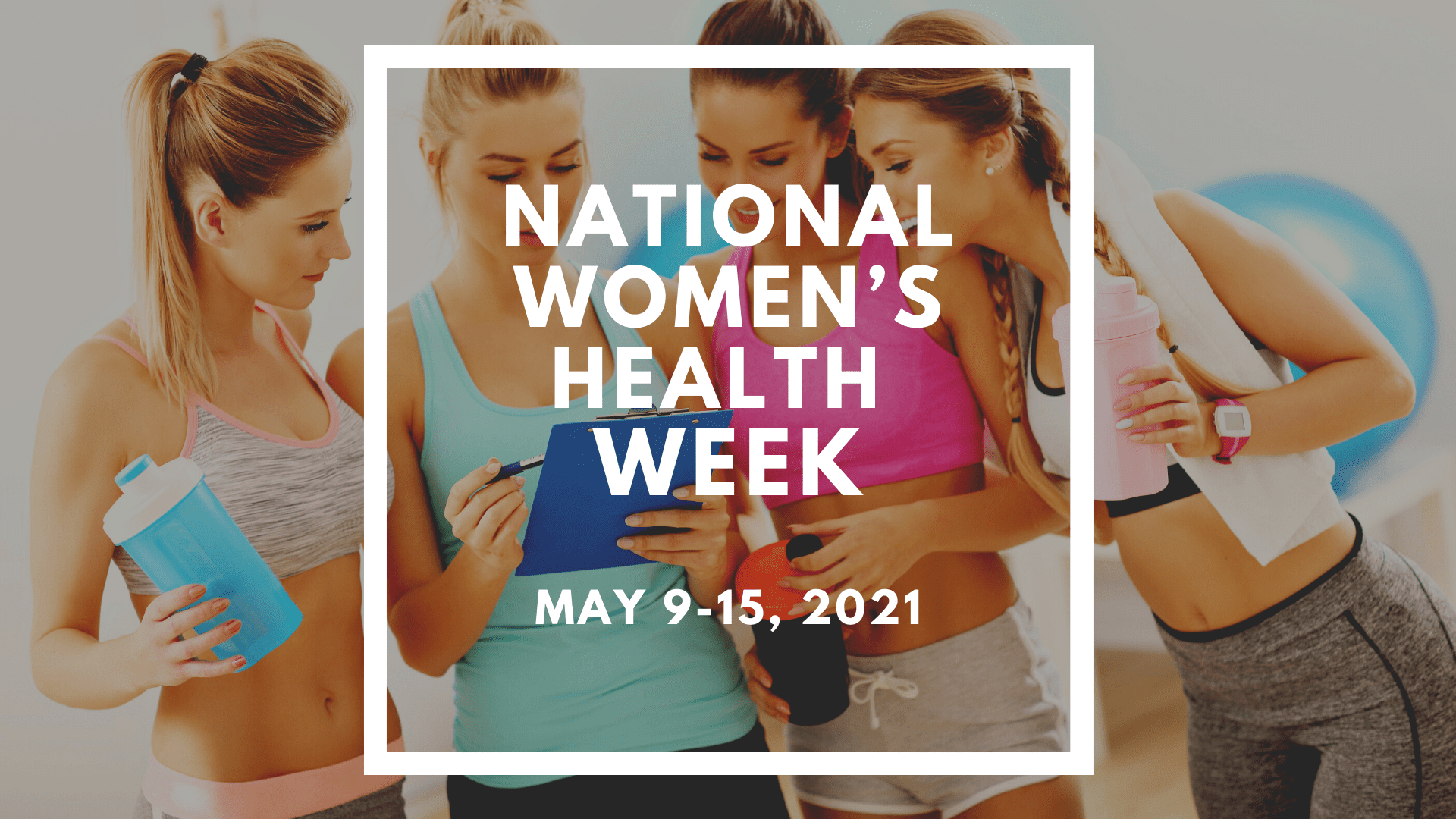
Posted 3 years ago
National Women’s Health Week
National women’s health week is a weeklong health observance (May 9-15, 2021) led by the U. S. Department of Health and Human Services’ Office on Women’s Health. The week serves as a reminder for women and girls to make their health a priority and take care of themselves.
Steps you can take for better health include taking care of your physical and mental health.
- Talk to your doctor, nurse or nurse practitioner and/or Physician Assistant:
- About preventive care such as PAP smears, mammograms, bone density scans, stress tests, cholesterol screening, blood pressure screenings, physical exams and other preventive health screenings you may have missed during the pandemic
- If stress, anxiety, or depression is getting in the way of your daily activities- these are all on the rise as a result of the pandemic
- If you have a health condition such as asthma, diabetes, high blood pressure or obesity, to develop or maintain a plan to keep it under control
- If your child has missed any recommended check-ups or vaccinations during COVID 19. The pandemic has caused many disruptions in families’ lives- and is come cases it has meant that children have missed or delayed their wellness checkups and vaccinations, which are a critical part of ensuring children stay healthy.
- Maintain a healthy weight
- Healthy weight is different for everyone but it is important to know what a healthy weight is for you.
- Set realistic goals. Talk to your doctor, nurse or dietitian about your health goals and ways to achieve them.
- Get and stay active
- Spend time outdoors in the sunshine – our body makes vitamin D from our sun exposure and vitamin D is important for all of us, but we are learning more and more its importance and role in immunity and our immune system and our health and wellness overall.
- Be physically active for at least 30 minutes a day.
- Incorporate exercises that build and strengthen your muscles.
- There is not a “one size fits all” approach to physical activity. Find a routine that fits your needs and abilities.
- Eat well balanced meals and snacks
- Healthy eating involved choosing more plant based foods – fruits, vegetables, whole grains, beans/lentils, nuts/seeds; while limiting saturated fats, trans fats, added sugars and processed foods.
- The Mediterranean Style Diet is a good example of healthy eating for all ages.
- Take care of your mental health
- Stay connected with family and friends
- Make time to unwind and focus on activities you enjoy
- Pay attention to changes in your mood and reach out for help
- Find healthy ways to manage stress
- Exercise, massage, deep breathing, slowing down and taking time relax and just breath, slowing down, meditation, yoga, tai chi, taking a hike or just getting outside in nature are all ways that can help manage stress. Find what works for you.
- Practice good sleep habits
- Good sleep improves your mental and physical health as well as boosts the immune system.
- Follow a routine for going to sleep- be consistent going to sleep and getting up- even on the weekends
- Try to get at least 7 hours of sleep per night
- Monitor alcohol intake
- If you drink at all, limit to not more than 1 drink per day
- Look out for your lungs
- Quit smoking vaping
- Continue to protect yourself from COVID-19
Eat well, exercise and hydrate for better health!
